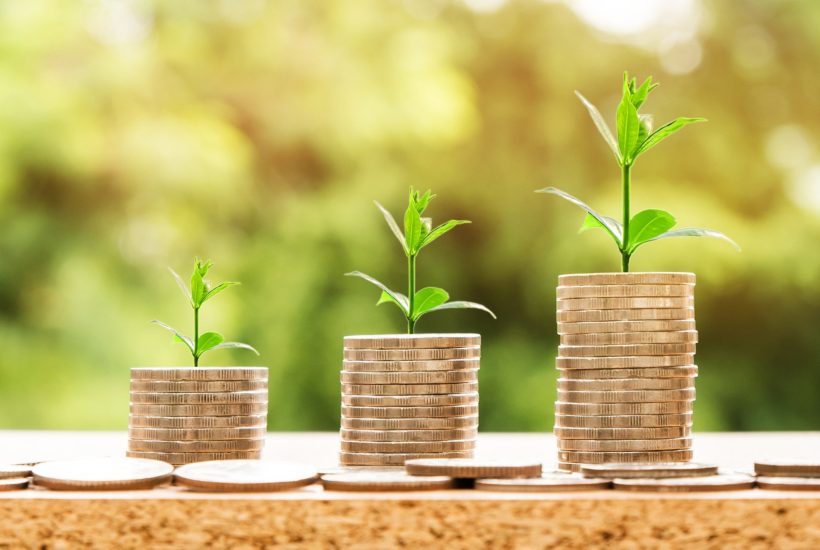Featured
A positive savings product for individuals was just launched
A lot of people have dreamt of growing their savings by investing in a project with a strong social impact. The fintech company We Do Good, a pioneer in royalty financing for individuals and companies, offers a model of positive savings. The proposed projects concern themes ranging from air quality to zero pesticides, by using solar boats and electric vehicles.

Many investors want to change the world with their savings. This is essentially what Nantes-based fintech company We Do Good, a pioneering platform in royalty financing based on crowd-investing or participative financing, is offering by launching a positive savings product for individuals.
If you want to find out how you can invest your savings in a project with a strong social impact and to discover the latest financial news in the world, download the Born2Invest mobile app.
Investing in a project with a strong social impact
“We want to enable everyone to invest 100 meters from home,” said Susana Nunes, one of the co-founders of We Do Good, in the launch statement. “This product promises financial transparency with an attractive return of 3% per year and a strong societal impact. The individual becomes an actor in the ecological transition,” explained Jean-David Bar, co-founder, and CEO of Nantes-based fintech company. The minimum investment amount is $10.7 (€10).
The proposed projects concern themes ranging from air quality to zero pesticides, via air quality with solar boats, electric vehicles, beehives or even fair trade electronics with variable investment periods. These can be 3 years for a fair telephone and 20 years for the installation of photovoltaic panels in private homes.
Generally speaking, royalty crowdfunding or royalty financing allows entrepreneurs to mobilize investors without diluting their capital. In addition, it allows them to pay back amounts proportional to their turnover, unlike the fixed terms of a loan, and to benefit from a progressive financial return without having to manage an exit. Companies can amortize their investment.
In concrete terms, every three months, each investor receives a part of the turnover of the project financed. The more the project grows and reaps results, the more the investor is a winner. Each time the investors have reached the necessary amount, the property financed is then purchased and entrusted to a partner company that will rent it out to its clients. It is the money resulted from this lease which is then paid back to the savers in the form of royalties.
Positive savings: another way to invest your cash flow
The companies themselves may be interested in products of this type and invest in turn with the aim of a cash investment, “having in addition to the financial interest, a strong societal dimension (economic support of companies in the territory, responsible investment in line with the CSR commitment meeting ESG criteria, etc…)” was stressed in the press release. “We can imagine, for example, a company that is going to help its supplier,” said the CEO of We Do Good.
At the moment, 12% of the amounts invested in the various products offered by fintech companies are invested by legal entities and/or companies. That is 38 companies in 2019 that have invested in projects of this type. “Most of them are SMEs,” emphasized Jean-David Bar, co-founder, and CEO of We DO Good.
“From a financial point of view, this is very interesting because the rates are generally very low. And that’s a differentiating factor. Indeed, companies are often proud to put forward such initiatives. “And nothing prevents companies from offering their employees the opportunity to invest in products of this type themselves,” concluded the CEO. Another way of giving meaning to one’s savings other than through simple employee savings schemes.
__
(Featured image by nattanan23 via Pixabay)
DISCLAIMER: This article was written by a third party contributor and does not reflect the opinion of Born2Invest, its management, staff or its associates. Please review our disclaimer for more information.
This article may include forward-looking statements. These forward-looking statements generally are identified by the words “believe,” “project,” “estimate,” “become,” “plan,” “will,” and similar expressions. These forward-looking statements involve known and unknown risks as well as uncertainties, including those discussed in the following cautionary statements and elsewhere in this article and on this site. Although the Company may believe that its expectations are based on reasonable assumptions, the actual results that the Company may achieve may differ materially from any forward-looking statements, which reflect the opinions of the management of the Company only as of the date hereof. Additionally, please make sure to read these important disclosures.
First published in dafMAG.FR, a third-party contributor translated and adapted the article from the original. In case of discrepancy, the original will prevail.
Although we made reasonable efforts to provide accurate translations, some parts may be incorrect. Born2Invest assumes no responsibility for errors, omissions or ambiguities in the translations provided on this website. Any person or entity relying on translated content does so at their own risk. Born2Invest is not responsible for losses caused by such reliance on the accuracy or reliability of translated information. If you wish to report an error or inaccuracy in the translation, we encourage you to contact us.

-

 Africa1 week ago
Africa1 week agoMorocco’s Tax Reforms Show Tangible Results
-

 Africa2 weeks ago
Africa2 weeks agoTunisia Holds Interest Rate as Inflation Eases, Debate Grows
-

 Biotech3 days ago
Biotech3 days agoUniversal Nanoparticle Platform Enables Multi-Isotope Cancer Diagnosis and Therapy
-

 Fintech1 week ago
Fintech1 week agoRuvo Raises $4.6M to Power Crypto-Pix Remittances Between Brazil and the U.S.























